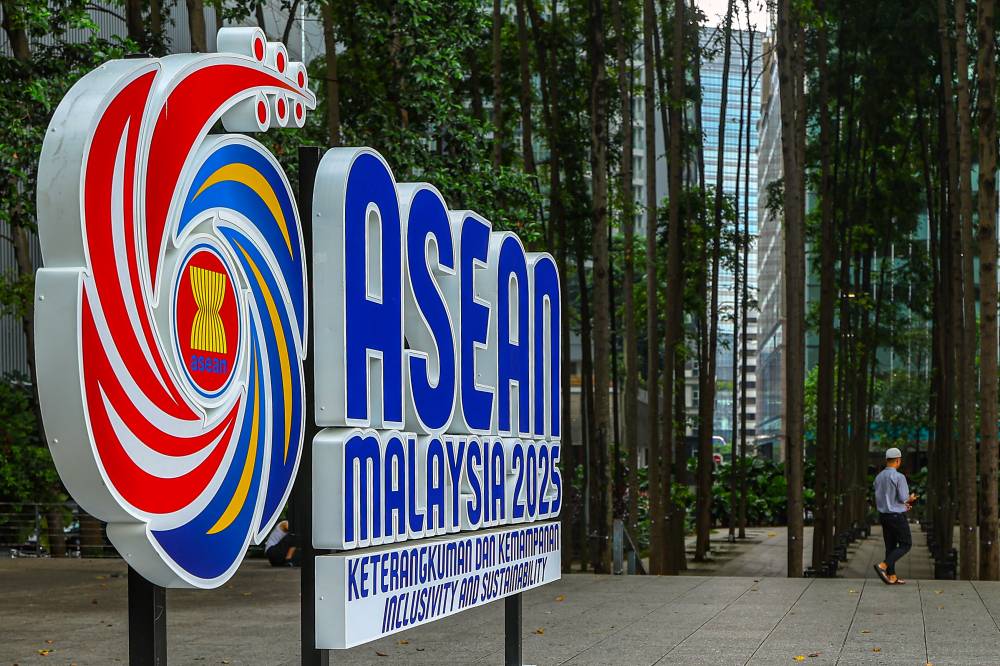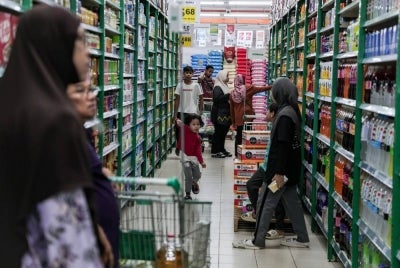Strengthening Asean resilience: Malaysia’s role as chair in tackling US tariffs
Malaysia’s decision to avoid a retaliatory stance was pragmatic and strategic rather than a sign of weakness.

THE United States (US) recently imposed a retaliatory tariff of 24 per cent on imports from Malaysia under President Donald Trump's new trade policy.
Other affected countries included China (125 per cent), Vietnam (46 per cent), Sri Lanka (44 per cent), Cambodia (49 per cent), Laos (48 per cent), Myanmar (44 per cent), and the European Union (20 per cent).
This move, named "Liberation Day," aimed to create a fairer international trade competition scenario, according to the Trump administration.
However, Trump announced that the tariff would be temporarily reduced to 10 per cent for 90 days to allow space for trade negotiations.
Meanwhile, Asean countries will issue a joint resolution in response to the US tariffs.
Investment, Trade and Industry Minister Tengku Datuk Seri Zafrul Tengku Abdul Aziz said this resolution will be discussed during the Asean Economic Ministers’ Meeting, which Malaysia will host as the Asean 2025 chair.
He explained that Asean possessed competitive advantages and the capability to produce high-quality products cost-effectively.
Tengku Zafrul further emphasised that the US tariff announcement has created market uncertainty and negatively impacted export-oriented countries like Malaysia, Singapore and Vietnam.
As a result, he said Malaysia will chair a Special Asean Economic Ministers’ Meeting to strengthen regional cooperation.
Prime Minister Datuk Seri Anwar Ibrahim assured that no economic recession was expected, even though Malaysia was affected by the US tariffs.
He said Malaysia would not implement retaliatory tariffs against the US for the time being.
Anwar added that the nation’s macroeconomic fundamentals remained strong, but the 2025 Gross Domestic Product (GDP) projection might be revised if the 24 per cent tariff was fully implemented.
In response to this, O2 Research chief researcher Anis Anwar Suhaimi suggested that Malaysia could share granular data analysis on tariff impacts and draft collective communiqués reflecting the bloc’s shared concerns about rising protectionist policies during intra-Asean consultations among trade ministers.
"This approach allows Asean to engage the US with a stronger moral and strategic voice. A unified Asean message highlights that the repercussions of these tariffs go beyond bilateral relations and affect regional trade flows, investment sentiment and long-term supply chain resilience," he said.
Anis emphasised that Malaysia’s role as the 2025 Asean chair placed it in a strategic position to lead the regional response.
While Malaysia does not possess the mandate to negotiate on behalf of all Asean countries individually, it holds the institutional credibility to convene, coordinate and articulate a unified regional perspective.
Anis said this was crucial given the exposure of Asean economies like Vietnam, Thailand, Indonesia and Singapore to the US tariff regime.
Commenting further, he said Malaysia’s decision to avoid a retaliatory stance was pragmatic and strategic rather than a sign of weakness.
He emphasised the importance of Malaysia addressing the issue on three interconnected fronts.
"On the economic front, Malaysia must shield key export sectors such as electronics, machinery and rubber products. This can be achieved through targeted fiscal buffers, market diversification assistance and export insurance support," he said.
He also highlighted the diplomatic approach stating that Malaysia should leverage the Malaysia–US Trade and Investment Framework Agreement to present empirical data that disproved the justification for these tariffs.
"At the same time, the country can explore sectoral cooperation in areas like high-tech manufacturing, clean energy and medical technology," he added.
On the political front, Anis noted that Malaysia must reinforce its image as a responsible and rules-based trading partner.
This step, he said will not only strengthen international credibility but also make it more difficult for protectionist arguments to gain traction in Washington.
He added that the 90-day grace period with the revised 10 per cent base tariff offers Malaysia a valuable diplomatic window.
"This period should be used to de-escalate the issue through data transparency, quiet diplomacy and the proposition of win-win solutions serving both national and regional economic stability," he said.
Meanwhile, Bank Muamalat Malaysia Berhad chief economist Dr Mohd Afzanizam Abdul Rashid commended the government's proactive measures during this grace period, highlighting its dedication to mitigating economic risks.
"Although there is consideration to revise the 2025 GDP projection, currently estimated at 4.5 to 5.5 per cent, this is seen as a precautionary step and not a direct sign of a recession.
"On a microeconomic level, Malaysians are expected to remain largely unaffected by this trade conflict.
"This is because the government has chosen not to impose retaliatory tariffs on the US, ensuring that import prices remain stable. Conversely, American consumers face the risk of rising prices as they bear the burden of tariffs on imported goods," he said.
However, Afzanizam acknowledged potential indirect impacts arising from China’s retaliatory tariff of 84 per cent on US goods.
He said as China was one of Malaysia’s key trading partners, increased business costs were expected to affect export prices to Malaysia, particularly in the technology, automotive and pharmaceutical sectors.
As a member of BRICS, he said Malaysia adopted a pragmatic approach rather than a confrontational stance towards the US, focusing on expanding trade markets.
"This move not only opens new opportunities for local businesses but also reduces dependency on single markets, thereby strengthening the country's economic resilience in the long term.
"Regionally, Malaysia’s role as Asean chair in 2025 is highly significant. Malaysia is committed to enhancing intra-Asean trade and ensuring unity among member states when negotiating with major powers like the US.
"This integrated approach is crucial for achieving win-win solutions while ensuring stability and continuity in regional supply chains," Afzanizam said.
Download Sinar Daily application.Click Here!















